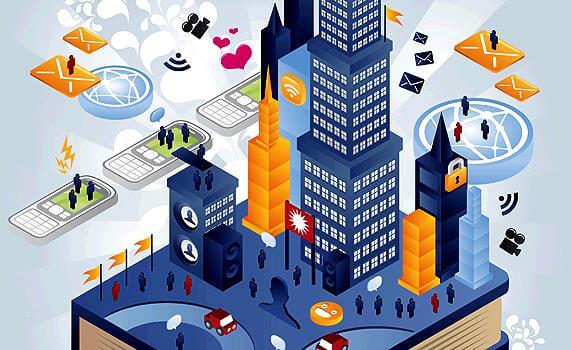Stories
The Impact of ICTs on Competitiveness
How ICTs have changed businesses and customer relationships
March 20, 2013

Technologies and the digital universe are playing growing roles in society. For the first time, the ICT (Information and Communications Technology) consumer market is larger than the corporate market. This process, known as the “consumerization” of ICTs, is unstoppable. It is not only here to stay, it is transforming companies and business sectors completely. ICT consumerization has also created a series of important challenges, as well as opportunities for creating social value.
In a recent presentation organized by the IESE Alumni Association, IESE Prof. Javier Zamora addressed this topic on the Madrid campus. His talk, titled, “The Ascent of People: Beyond Consumerization of ICTs,” was part of the Continuous Education Program.
Zamora stressed that the adoption of new technologies should not be seen as merely a threat and part of a disruption in the traditional value chain. Instead, it should be viewed as a tool for boosting competitiveness.
For the first time in the history of ICTs, consumers are utilizing technologies at home that are more advanced and accessible than those typically used in the workplace. This shift, in which people suddenly have significant knowledge of the use and benefits of ICT tools and services, is driving social change. This, in turn, is having a direct impact on how companies are organized and how they relate to their clients.
Paradigm shift
Social networks, smart phones, Big Data and the cloud are key components of this new digital era. Moreover, the capacity to process information is advancing at an unprecedented pace, he said. Technology is also blurring the line between professional and personal life.
“This is taking us to a new paradigm. Without knowledge of the possibilities that new technologies offer, executives cannot set out a viable strategy for their companies,” he said.
Consumerization is altering flows of information, as well as specific social norms. Zamora stressed that companies need to leverage the benefits that ICTs offer so they can move ahead of rivals and increase competitiveness.
He went on to describe how tools such as email, Google and its multiple applications and Facebook have now become a fundamental aspect of the future of many firms. “Have we seen the full potential of social networks? I believe we will also see the rise of corporate social networks.”
The post-PC era
New technologies and the vast possibilities offered by Web 2.0 facilitate bidirectional communication, in which customers have the chance to express their opinions directly to companies during every interaction. He noted that society has entered the post-PC era, when mobile platforms are gaining ground over traditional PCs.
“This means that we are giving greater decision power to customers and employees, and it implies an atomization of business processes and an increase in competitiveness,” he said. In this context, “digital natives” – people who were born after the advent of ICTs – are gaining greater importance. This new generation will soon transform into new customers and employees, and therefore have a greater impact on business activities.
What will be the consequences of the consumerization of ICTs? Zamora noted that the consumer will have greater capacity to make decisions in real time; employees will look for greater participation and control in business processes; citizens will seek greater interaction with politicians; and clients will use social networks to adopt brands.
The power of ICTs is unquestionable, he said. While the radio took 38 years to reach an audience of 50 million people, the Internet took just four years to reach this number. Facebook did it in just two years. Today more than 1 billion people use the network founded by Mark Zuckerberg. Against this background, a key challenge for executives is to identify ways to manage cultural changes and adapt their organizations accordingly, Zamora concluded.